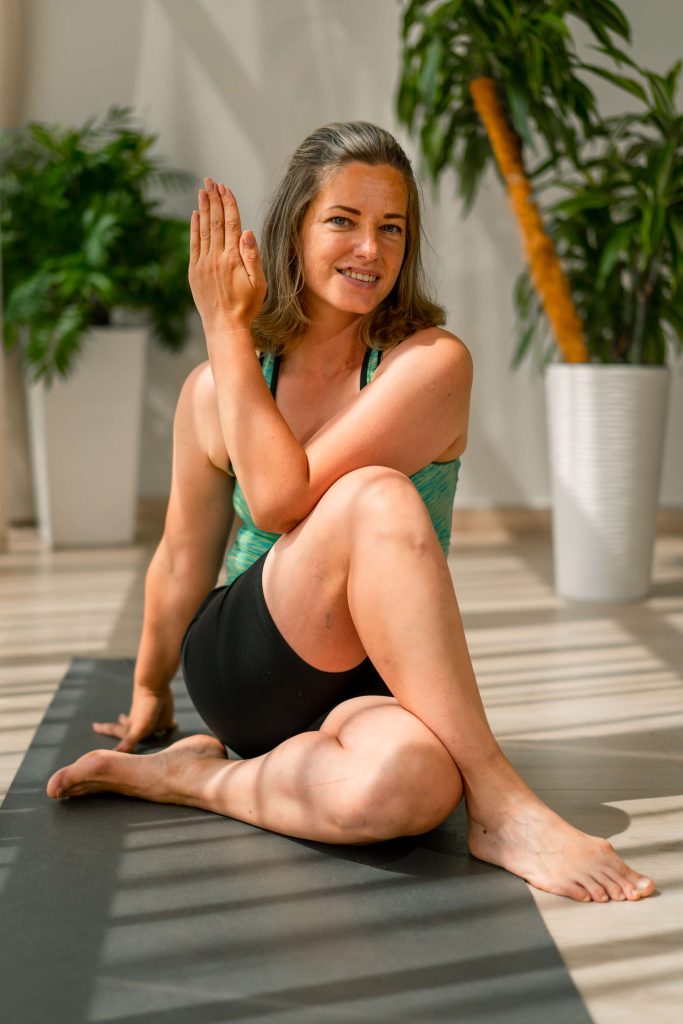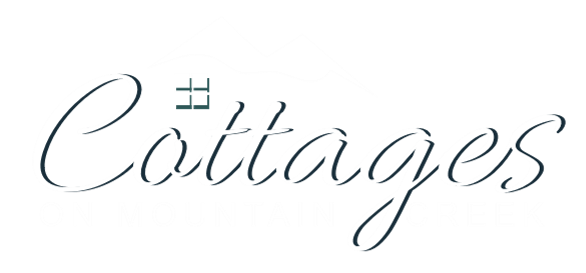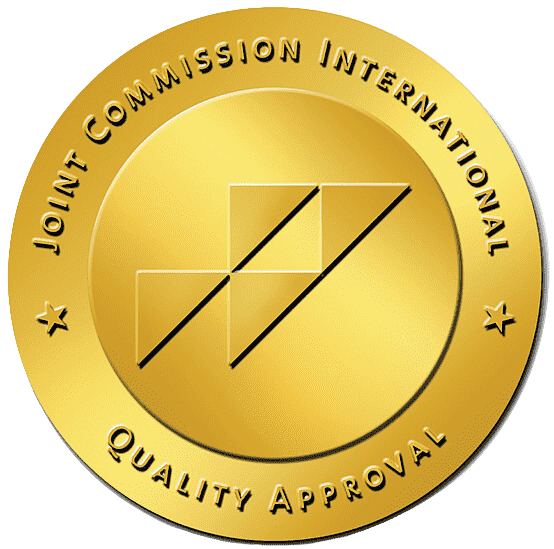Therapies
The Cottages on Mountain Creek takes a Holistic approach to mental health including: Physical Fitness, Nutrition, Creativity, Clinical & Psychotherapy, Meditation, Natural Therapies and more… we welcome you to a more balanced health. We offer a wide variety of proven therapies for participants in both Residential and Day Programs. These therapies allow a person living with mental illness to

- Explore personal feelings
- Make positive changes in mood and emotional states
- Improve general wellness with nutrition and exercise
- Gain a sense of control over life through successful experiences
- Practice problem solving with more confidence and
- Resolve conflicts leading to stronger family and peer relationships
Good mental health is about maintaining balance in our thoughts, actions and especially in our emotions. Cottages therapies foster overall good health in mind body and spirit. Take a look at our extensive list of therapies below:
Note: While we make every effort to offer each of these therapies throughout the year, in the event of any challenges with facilitator or venue availability, weather and other.
factors beyond our control, we cannot guarantee that all therapies are available at all times. Clients receive notice of any scheduled therapy changes as efficiently as possible
Dealing with Pain
Intensive Out-Patient Program
The ‘Dealing with Pain’ Intensive Out-Patient Program (IOP) is a state-of-the-art pain management programming that is quantitative documented and outcome-driven. It is a seven-week cognitive therapy multi-modal program designed to achieve/maintain stability with severe and persistent pain, a fully integrated medical-behavioral health continuum-of-care; AND A family education/support center of excellence
The Program is sponsored by Bright Path Neuron-behavioral Programs and is a collaborative program in conjunction with a Pain Clinic (physician directed) The program addresses pain awareness and management [includes Physical, Spiritual, Relationship and Family ‘Wellness’].
Additional support includes individual therapy, family support, psycho-educational therapy, medication management and vocational adjunct support. Also available is PT, OT and ST (reimbursable through Medicare and insurance).
Admission is Clinically Based and is Overseen by: The Medical Director; and Program Director (medical, psychiatric and psycho social).


Admission Criteria Includes the following
- Demonstrated systemology Chronic pain history Motivation to attend Capable of participation in all phases of programming
- The Program follows the World Health organization Disability Assessment Scale
- Participation in the Program is Conditioned Upon an initial Assessment and must not be a danger to self or others and must be medication compliant.
To remain in the program, participants must sign a “Participation” agreement that addresses specific symptoms or impairment. The documentation must be clearly evident.
The Dealing with Pain Program “IOP” includes the following
- Daily Goal Preparation Notes
- Mindfulness
- Cognitive Therapy
- Behavioral Analysis
- Interpersonal Effectiveness
- Emotional Regulation
- Distress Tolerance
- Coping/Crisis
Upon graduation, participants will receive a self-help workbook.
Brain Flex Program
The Therapy ConneXion
The Bright Path Program GPS introduces a documented, evidence-based and outcome-driven Day Program for Seniors
The Benefits
- Cognitive abilities are tracked and documented
- Information provides insight for caregivers, families and medical professionals
- Documentation can provide an early warning signal indicating possible decline
- Integrated with socialization, as well as arts and crafts and light exercise
The Cost
- $35.00 / Half Day Session All Sessions include snacks and breaks
- Hours: Monday-Friday: 1:30pm–4:30pm
- Documentation can provide an early warning signal indicating possible decline
- Integrated with socialization, as well as arts and crafts and light exercise
How Does it Work?
- Participants engage in a variety of specialized tasks
- Assess cognitive abilities to establish a “baseline” which can be measured over time
- Abilities are assessed in four different areas: Vision; Hearing; Speech; and Movement
- An array of cognitively stimulating exercises and activities are utilized to continually test and assess each participant’s cognitive status
- Integrated with socialization, as well as arts and crafts and light exercise


The Program
- A curriculum-based, cognitive assessment program developed by Bright Path Program, GPS
- A unique program
- Designed to act as a proactive assessment tool to measure cognitive ability in seniors
- Provides concrete data on cognitive functioning
- Surpasses the typical maintenance program
- A unique, proprietary program
- Accredited by the Joint Commission
What’s Included?
- Program Curriculum (Fully documented for deliverables)
- Licensed Therapists will review the program documentation on a monthly basis
- Resident records are assessed by a Board Certified Physician/Psychiatrist on a monthly basis
- Programming is delivered by experienced behavioral professionals
- Bright Path Program, GPS will constantly monitor and improve the program as program improvements are implemented
The Bright Path GPS Program has earned the Joint Commission’s Gold Seal of Approval®
Intensive Out-Patient Program
The Bright Path Intensive Out-Patient Program is a partial-day treatment program consisting of specialized group therapy sessions led by clinical therapists. The program is skills-based, emphasizing the use of Dialectical Behavior Therapy (DBT) and Cognitive Behavior Therapy (CBT). The program is fully documented and measurable.
Who We Serve
The primary population typically has one or more of the following conditions: Mood and Anxiety Disorder (Major Depression, Bipolar Disorder, and Obsessive Compulsive Disorder), as well as Schizophrenia, and Schizo-affective Disorder. Clients must be stabilized on their medications.
Program Schedule
The Bright Path IOP meets five days per week, three-hour sessions. Three sessions per day are available: mornings 9:00am – 12:00pm, afternoons 1:00pm – 4:00pm and evenings 6:00pm – 9:00pm.
The program consists of a Goals Group and a DBT Group, ending with a Coping Skill Group or CBT Group.The IOP runs a minimum of six weeks on a tapering schedule. Some clients remain longer, based on symptoms and medical necessity.
Referrals
For client referrals, please call (404) 786-9520 to arrange a telephone screening and schedule an intake appointment. Program intake can occur within three days of the phone screening.


The Program
- Time Limited
- Multidisciplinary/Multimodal Structured Treatment in Out-Patient Setting
- Program is used to intervene in a complex or refractory clinical situation to achieve/maintain stability for individuals with severe and persistent mental illness
- Clinical interventions available include individual, group, family support, psychoeducational, therapies and medication management
- Treatment is individualized and focused on acute stabilization
Clinical Team
- Psychiatrists
- Licensed Professional Counselors
- Mental Health Counselors
- Programming is delivered by experienced behavioral professionals
- Bright Path Program, GPS will constantly monitor and improve the program as program improvements are implemented
Pillars
- Physical Wellness
- Spiritual Wellness
- Career Wellness
- Financial Wellness
- Relationship Wellness
- Family Wellness
Theoretical Construct
- Primary: Cognitive Behavioral Therapy (CBT)
- Secondary: Dialectical Behavioral Therapy
Program Structure/Components
Group Based
- Group Dynamic: 10 participants to 1 trained clinical staff (10:1 ratio maximum)
- Curriculum: Wellness based on Bill MacPhees’ Six Pillars to Wellness one week per chapter with a complete program cycle of six (6) weeks. Each chapter is broken into CBT based components (readings, exercises, videos, worksheets, homework sheets, etc…)
Curriculum Components Tied to Pillars
- Daily Goal Preparation Notes
- Mindfulness
- Cognitive Therapy
- Behavioral Analysis
- Interpersonal Effectiveness
- Emotional Regulation
- Distress Tolerance
- Daily Planning
- Discharge Planning
- Coping/Crisis
Curriculum ‘Graduates’ offered on-going support group (once a week: sixty minute) at an additional nominal fee
Curriculum ‘Open and Free Flowing’ Enrollment; allowing for new participants to enter at any time during the program
The Program meets five days per week for three-hour sessions (three sessions per day are available: mornings: 9:00am-12:00noon, afternoons: 1:00pm-4:00pm and evenings: 6:00pm-9:00pm)
Our Participants meet initially five days per week with treatment modification allowed by participant and treatment team to no less than three sessions per week


Staff Training
- Active Treatment (value based)
- Measurement (goals/ objectives)
Determine Acceptance Criteria
- Demonstrate symptomology consistent with DSM-V (Axis I-V) diagnosis with reasonable expectation to respond to therapeutic intervention
- Motivated to attend and capable of participation in all phases of program
- Non-active suicidal or homicidal thinking or recent behavior (i.e., suicidal gesture within past four weeks)
- Axis II ‘may be’ invited to participate ‘if’ Medical Director and Program Director agree
- Actively engaged in outpatient care with mental health professional/ agency
- Cognitive learning capability (prior GAF score within the range of 31-60)
- Medically stable; medication compliant
Exclusion Criteria
- Individual is danger to self/other
- Medical impairment
- Structure/supervision beyond scope of program
- Program participation and compliance
- Progress in relation to specific symptoms or impairment clearly evident
Application Process
- Psycho-Social Evaluation
- Psychiatric Evaluation
- Participant Contract
- Master Treatment Plan (Care Plan)
- Treatment Plan adjustment format
- Group Case Note Template
- Individual case note template
- Aftercare Plan Template
- Certificate of Completion
Curriculum Components (per chapter; per session)
- Readings
- Handouts
- Worksheets
- Journals

Mood and Anxiety Disorder Programming
The following data is from the National Health and Nutrition Examination Survey
- During 2013–2016, 8.1% of American adults aged 20 and over had depression in a given 2-week period.
- Women (10.4%) are almost twice as likely as men (5.5%) to have depression.
- Depression was lower among non-Hispanic Asian adults, compared with Hispanic, non-Hispanic black, or non-Hispanic white adults.
- The prevalence of depression decreased as family income levels increased.
- About 80% of adults with depression reported at least some difficulty with work, home, and social activities because of their depression.
- From 2007–2008 to 2015–2016, the percentage of American adults with depression did not change significantly over time.
What are Mood and Anxiety Disorders?
- Depression
- Anxiety/Panic Disorder;
- Bipolar Disorder;
- Adjustment Disorders;
- Personality Disorders;
- Self-harming Behaviors; and
- Phobias
Treatment
- Office-based evaluation treatment;
- Intensive out-patient services; and
- Community coordination with in-patient stabilization
Medication and Cognitive Behavioral Therapy (CBT) are often equally effective in treating depression. Chronic and more severe depression responds better to a combination of medication and therapy. Medication plus CBT is more effective than medications alone. About 1 in 8 adults in the U.S. are taking medications that are prescribed for depression.
Interpersonal Therapy is a highly effective treatment for depression. Relationships affect our well-being, for better and for worse. Positive changes in the ways we relate to others can lead to a major mood boost, and can also help prevent relapse.
Structured CBT delivered through the Internet leads to small but significant improvements in depression. Assistance from a therapist is likely to boost these programs’ effects.
Mindfulness-Based Cognitive Therapy (MBCT) prevents depression relapse, particularly among those with three or more episodes of depression. Those who receive MBCT are 34.0 percent less likely to relapse.

Diagnosis and Treatment Includes
- A full psycho-social and medical evaluation
- Individualized treatment planning
- Cognitive behavioral therapy
- Pharmacological management
- Mindfulness practice
- Anger management and emotion regulation
- Interpersonal effectiveness and assertiveness skills
- Distress tolerance skills
- Relapse prevention
- Care management and ongoing collaboration with outside providers
Two Levels of Treatment and Care are provided as follows:
Comprehensive Out-Patient
- Case Management;
- Individual CBT therapy;
- Coping Skills (DBT);
- Weekly Group CBT Therapy; and
- Pharmacological Management.
Level I clients also have access to health and wellness programming including fitness and nutrition programs, as well as yoga and massage.
This program takes place over an 8-10-week period after which care transfers back to community-based providers.
Life Skills Group
Each patient undergoes treatment including a weekly skills group for adults who experience frequently recurring symptoms of their mood or anxiety disorder and a Dialectical Behavior Therapy (DBT) skills training in addition to their existing out-patient therapy.
Most participants’ mood and anxiety symptoms go into remission. After programming, the client returns to their primary care clinician for maintenance treatment.

Adjunct Programming
Diet
Studies have found that educating people about better eating habits could lead to big reductions in depression. Participants were advised to increase consumption of vegetables, whole grains, legumes, healthy fats, and lean proteins, among other foods and to reduce heavily processed and sugary foods, as well as alcohol.
The Cottages on Mountain Creek/Bright Path Program prepares meals that are primarily sugar free and no use of margarine and/or shortening. Our Organic gardens provide fresh herbs for cooking and fresh garden vegetable in season. Processed foods are kept to a minimum and saturated fats are not a part of the dietary program.
Dietary, nutrition and meal preparation are part of Bright Paths out-patient programming.
Exercise
Researchers have found benefits of walking, jogging, running, resistance training, and other forms of movement. More intense activity generally leads to greater depression relief.
The Cottages on Mountain Creek/Bright Path Program provides for a full integrated treatment program with fitness being an important part of the programming. Fitness training is part of the out-patient programming.


Summary
- A unique program;
- Proactive program, as opposed to reactive
- Utilizes CBT, Mindfulness, Nutrition and Fitness as the basis for a fully integrated program for recovery
- Includes Yoga and Massage
- A unique, proprietary program
- Accreditation by the Joint Commission
- Physical Therapy is also available upon request
- Programming is tracked and documented
- Information provides insight for caregivers, families and medical professionals
- Documentation can provide an early warning signal indicating possible decline
- Includes fitness programs, recipes for healthy eating and medication/CBT regime as provided by a psychiatrist.

